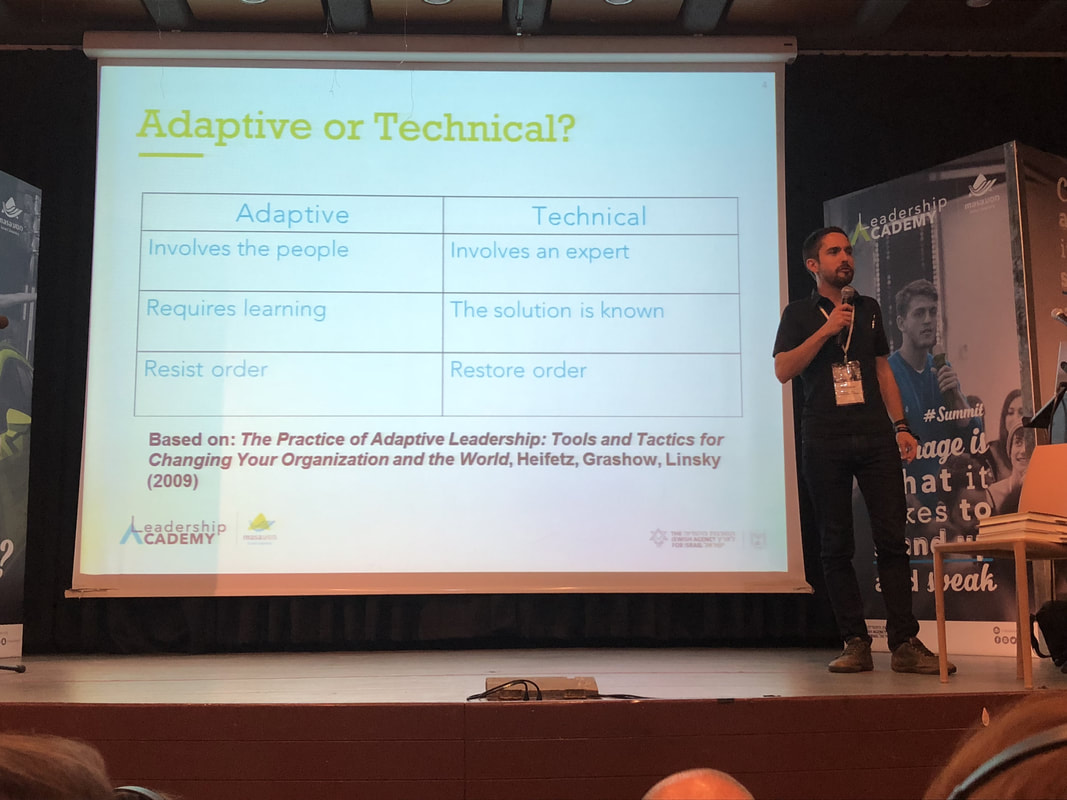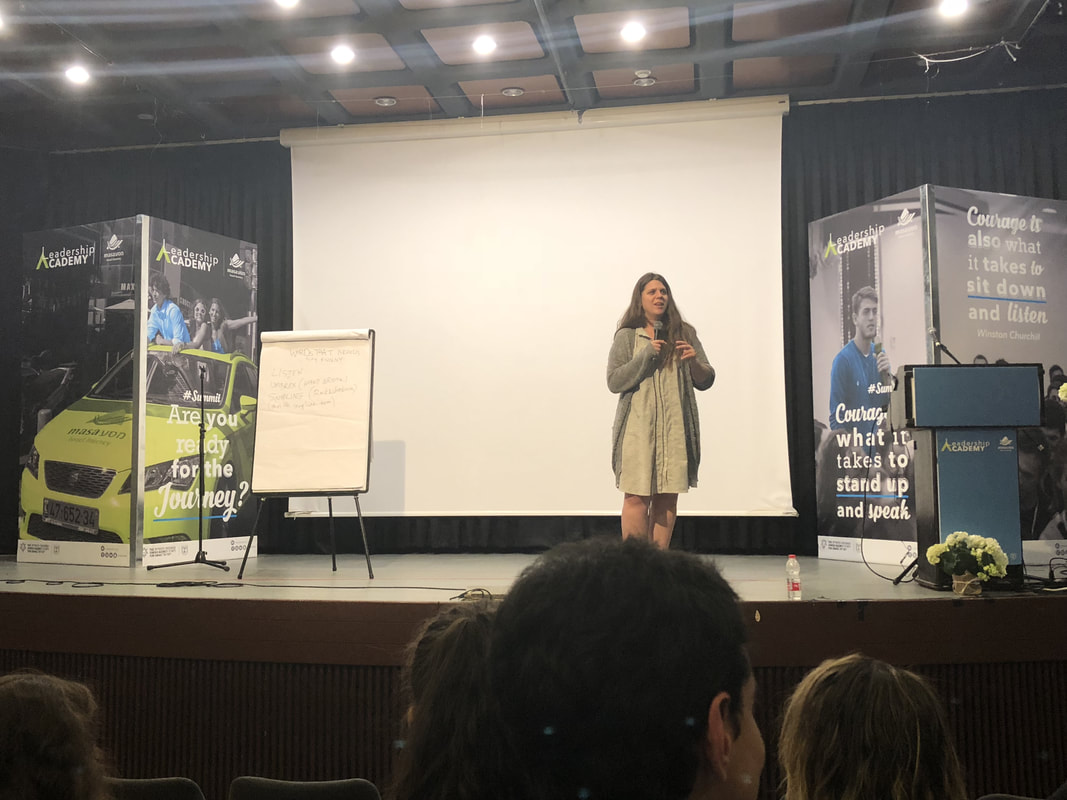Thinking back, I went to the Summit to get permission to be a leader. What ended up happening was I gave myself permission to be a leader. Here’s what that process looked like:
Upon arrival, our first activity was the “Plenary” in which we all gathered in the auditorium.
Ben, the program director, welcomed us and proceeded to ask us a vague question. There was silence because no one understood it. Ben then sat down on the stage and looked at us expectantly. After awhile, people began talking amongst themselves. It started hesitantly and then people became louder and louder until the entire auditorium was filled with people talking about how confused they were. Some people tried to unite the group through music. One guy stood up and sang “We Are the World.” Another started clapping and shouting “we will, we will rock you.” Whereas the people in close proximity to the brave ones joined in, those in the periphery remained out of sync with the rest of the group.
Our next activity was “Home Group.” These were 6 groups of 25 delegates and 1 facilitator. When we all sat down in a circle, we looked to our facilitator, Jason, for guidance and, again, he asked us a vague question and was silent. People in my group became very frustrated. Over the course of the next few days, many people stopped showing up because they didn’t like the lack of direction. However, I found the social experiment fascinating. Over the 5 days, we were forced to figure out what to do as a group in the absence of leadership. Moreover, we were encouraged to introspectively recognize our own roles and leadership styles in the group.
I have always wondered whether I am leader material since I feel more comfortable listening than talking. In class discussions, it’s usually the loudest and most opinionated voices that get heard. Moreover, in general I am careful about what I say because I try hard not to offend others. I also experience fear before I speak that what I say or do will not be accepted by the group, that it will be for nothing, or worse, people will think it’s stupid. Lastly, when I do have a useful comment or question, it often goes unsaid because I either do not want to disrupt the flow of the conversation or I worry I will be perceived in an unfavorable way. The conference addressed each of these concerns in various circumstances.
I had an amazing conversation with one of my colleagues in the home group. It is clear he is not afraid to talk in public and deemed himself the “most vocal one in the group.” I should note that that was not my perception at all. His contributions were always insightful and never seemed excessive. I’ve always admired people like him because they seem so confident. However, he said that he is self-conscious every time he speaks because he fears that others are thinking that he talks too much. We also described differences in our upbringing. In my family, I’m an only child and it is taboo in our household to interrupt or speak over each other in conversations. However, he is the youngest child of a large family and he grew up feeling like he had to speak loudly and often in order to be noticed. This conversation made me realize that many people (and perhaps everyone) have anxiety about speaking to a room full of people. Furthermore, maybe the right answer isn’t in talking the most, but finding a balance between listening and speaking.
I also learned a lot from Daphni Leaf, an Israeli social activist, on voicing my opinions.
She is widely known in Israel for initiating a movement protesting housing costs in Israel by pitching a tent on a crowded street of Tel Aviv. Soon after, she had thousands of people join her. The story Daphni told was unique not only in its substance, but also its delivery. Daphni did not paint herself as a hero, but as a failure who was driven by her circumstances to take drastic measures, which inadvertently spurred social change. She described herself as awkward, but I saw a huge amount of maturity in her because she was able to speak to us so truthfully about her life. In her, I saw the kind of leader I want to be: one who does not shy away from sharing my honest opinion. Here is an interview with her (not the one I saw but you’ll get the gist):








